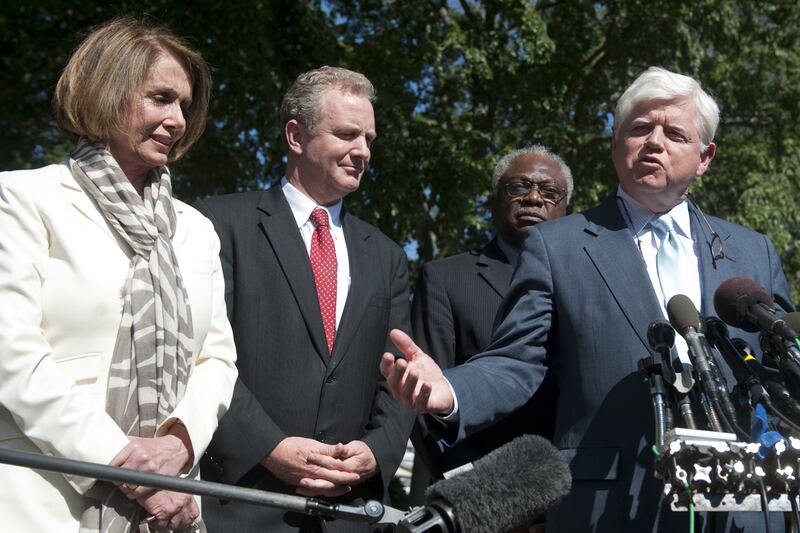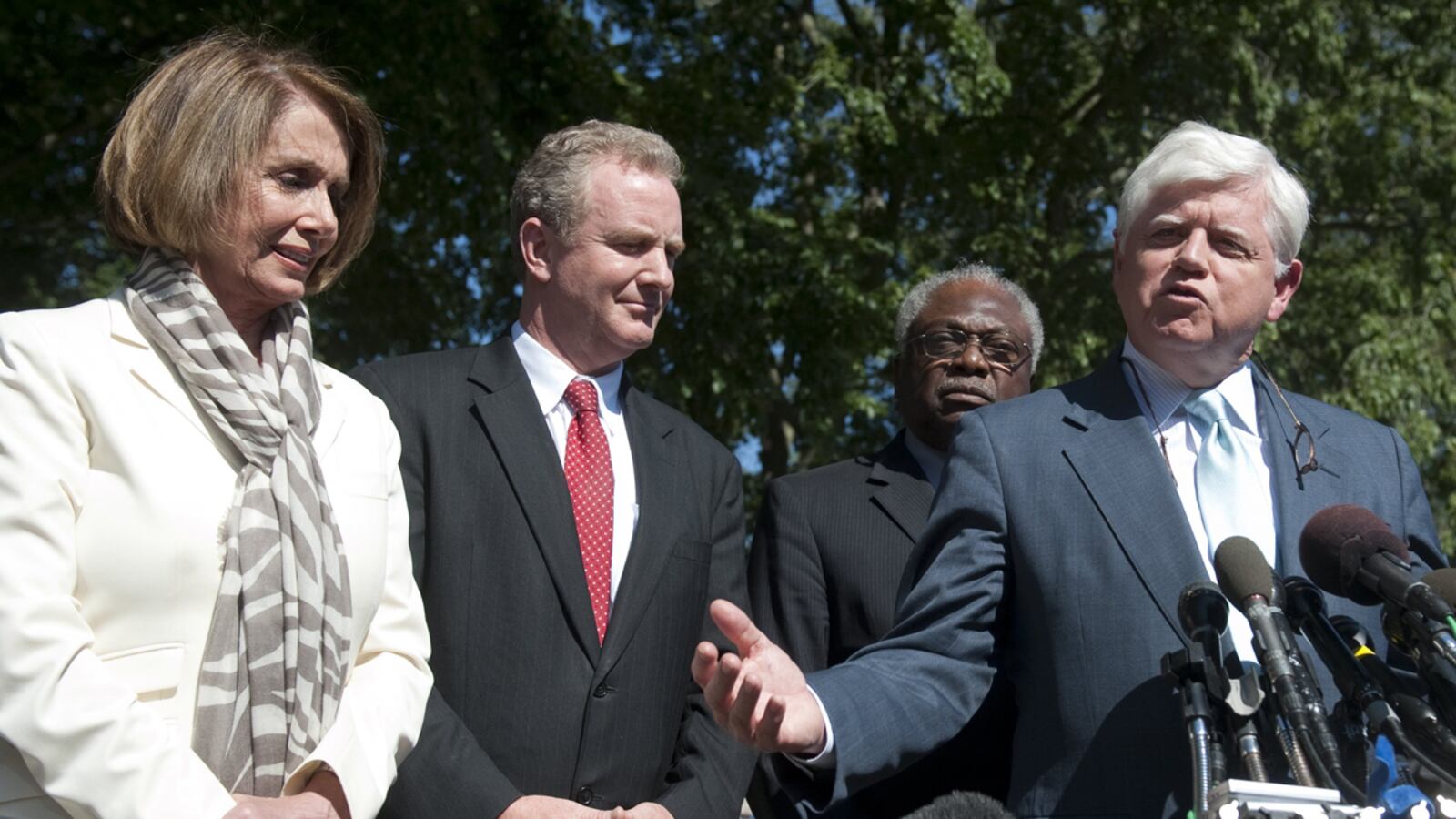House Democrats got a painful lesson on the realities of divided government Thursday when news leaked that President Obama was nearing a major agreement with House Speaker John Boehner to raise the debt ceiling.
The possible framework would slice more than $3 trillion from the federal budget over the next 10 years, including cuts to key entitlement programs such as Medicare, which Democrats have vowed to block.
Worse, in other Democrats’ minds, was a proposal to move a tax reform package in Congress to raise revenues, instead of the party’s plan to hike income taxes on wealthy Americans.
Not only was the president apparently moving without their knowledge, but as details of the possible agreement made clear, Obama was choosing a path that was designed to win the votes of the Republicans’ caucus in the House and not the Democrats’ own caucus.
As rumors about a possible deal spread across Capitol Hill, confounded House Democrats said that if Obama was looking for 218 votes to pass such a package, he would have to do it without them.
“I guess they have the votes over there,” said Rep. John Larson, the Connecticut Democrat, motioning to the Republican side of the House chamber. “Whatever that is, we’re not privy to it. Stay tuned.”

Democrats seemed shocked that their president would consider a deal so far from their own politics, but they should not have been.
Obama faced a similar, but smaller impasse with larger Congressional majorities last December as the Bush tax cuts moved toward expiration on January 1st. Rather than let the cuts expire, as he promised to do during his campaign, Obama scolded liberals for being “sanctimonious” in opposing the tax cuts and struck a deal with Boehner, then just the speaker-designate, to extend all the tax rates for two years, even for wealthy Americans, in exchange for an extension of unemployment benefits.
Progressive Democrats balked then, as they did Thursday, but the measure passed both chambers with large majorities.
The president now faces a far more daunting economic reality, with a potential default on August 2, and the global economic calamity that reportedly would follow. And unlike December, Republicans now control the House that Obama needs to start the process.
Although Boehner likes to say the GOP runs only one-half of one-third of the federal government, the reality is that House Republicans alone have the power to begin the legislation needed to raise the debt ceiling. And while the Boehner may be amendable to negotiating with the president, he seems to have a harder time negotiating with his own caucus, including the unwieldy group of Tea Party freshmen who have made it clear that any deal that raises taxes as a part of raising the debt ceiling cannot get their approval.
GOP staffers say Boehner’s task of negotiating a package with the freshmen is made even more difficult by the fact that many seem to be missing the basic Washington instinct of self-preservation. They claim not to care how blocaking a debt-ceiling increase would affect their reelection chances. “They’ll kamikaze themselves if they think they’re doing the right thing,” one staffer said.
Rep. Dan Lungren, who has been on Capitol Hill more than 40 years between his time as a staffer and member of Congress, says he thinks the freshmen will follow Boehner’s lead.
“Ultimately you’ve got to run the play that’s called in the huddle,” Lungren said. “John Boehner has been listening and listening. If there’s one thing he’s done, it’s listening to members.”
But even if a package passes the House, it will still need significant Democratic support in the Senate to become law. And that’s where the president’s job becomes even more difficult.
Senate Majority Leader Harry Reid made it clear that the framework that was floated Thursday would likely not get his support. “The president always talked about balance. There has to be some fairness in this. This can’t all be cuts,” Reid said.
Sen. Bernie Sanders, an independent from Vermont, agreed. “We need to have a deficit-reduction package which is fair and which asked the wealthiest individuals and corporations to contribute,” he said.
Privately, Democrats also worried that any cuts to Medicare in a debt deal would neuter what they believe is their most powerful campaign issue going into the 2012 elections. Nancy Pelosi and some of her colleagues have been hammering Republicans in recent months over their willingness to turn Medicare into a voucher program, as in the budget plan assembled by Rep. Paul Ryan and approved by the House.
With time slipping toward the August 2 deadline and no specific deal yet on the table, some Democrats who had been through the Bush tax-cut battle seemed resigned to the fact that Obama would move on without them no matter how much they protest today.
“The president has to get a deal,” said Rep. Peter Welch. “He’ll do what he has to do to get it.”






